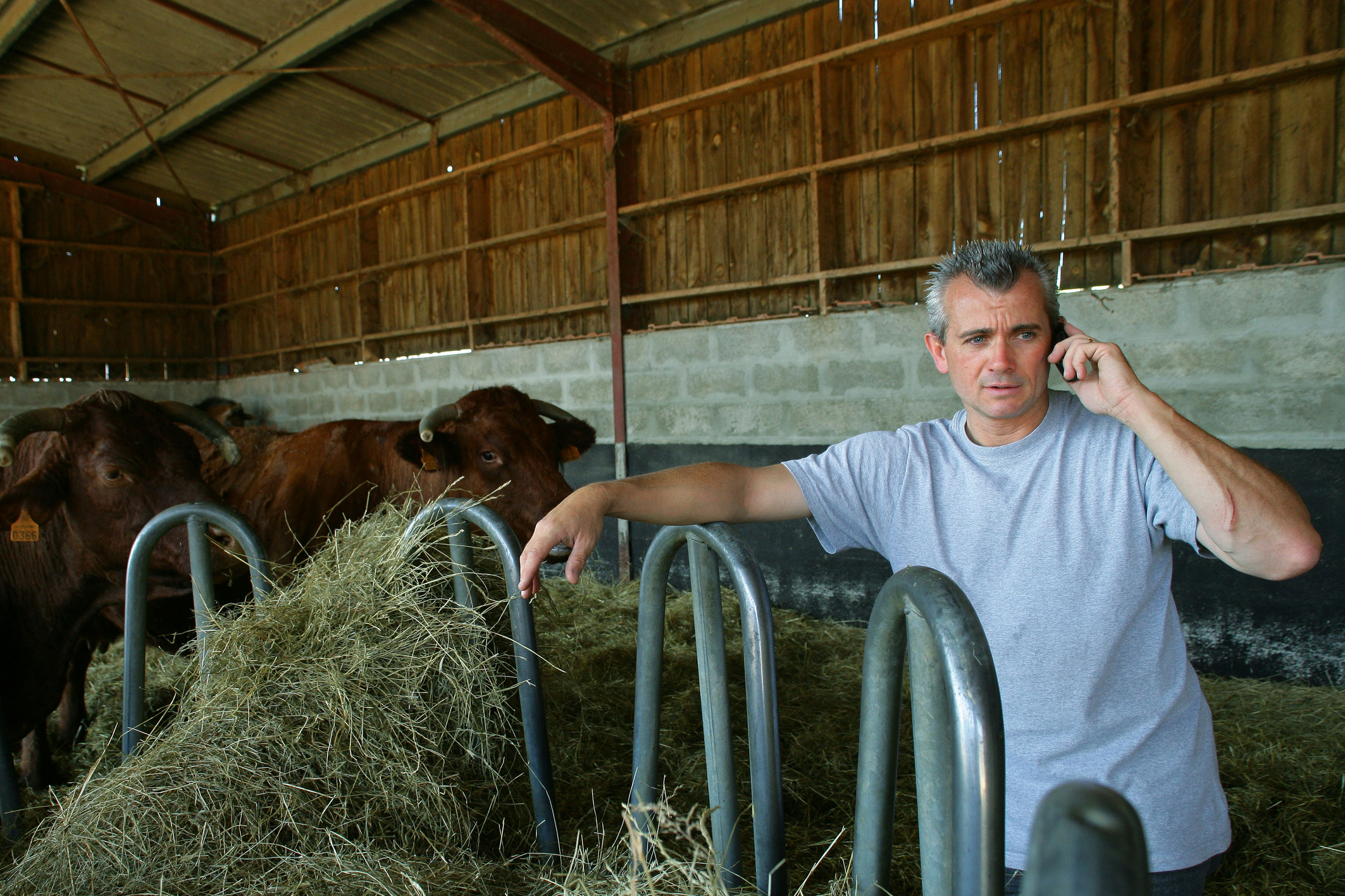Q&A: Could the 4G auction help boost rural mobile coverage?
Ofcom has been called on to use the upcoming 4G auction to improve rural mobile coverage, but why should the body obey?


As anyone who lives in the countryside knows, when you get coverage on your mobile at home it's akin to receiving a revelation from the heavens.
Your eyes widen and a high-pitched yelp emerges from your quivering mouth in sheer amazement that signal has stretched so far out of urban zones.
The Communications Consumer Panel today released a statement calling on Ofcom to ensure these kinds of moments are a thing of the past. The group wants not-spots to be eradicated.
The upcoming spectrum auction is the key moment for the panel. The independent Ofcom adviser proposed having the watchdog set coverage obligations for certain parts of the UK.
It also suggested funds be retained from the auction so they can be pumped into improving rural connectivity. The panel recommended holding a "reverse auction," in which operators would be able to bid for funds to extend services in rural areas.
We caught up with Colin Browne, member of the panel, who told us about why the body wants to see quality coverage made available across the whole of the UK, not just for urban denizens.
There has been much talk about where investment in web connectivity for remote parts of the UK should come from. Why do rural businesses need greater mobile coverage in particular?
Sign up today and you will receive a free copy of our Future Focus 2025 report - the leading guidance on AI, cybersecurity and other IT challenges as per 700+ senior executives
Apart from individual and private customers, there are a lot of small businesses operating in rural areas, in particular in the farming community.
It's really important to get them the help and support they need. Good communications are a vital part of that.
Has Ofcom done enough to prove it is serious about bringing coverage to rural areas?
Ofcom has done what it can do, but Ofcom has to operate in the regulatory environment that it has to implement. Ofcom doesn't make policy, it enforces regulation.
Those places that were not-spots nine or 10 years ago are still not-spots now and we think this is an opportunity to do something about that.
But this particular exercise [the auction], which will require political will too, gives Ofcom an opportunity to address this issue.
What about providers? Are they doing enough to bring better connections to the countryside?
The providers in my experience are quite committed to doing this, but they will do what is economically sensible to do.
Insofar as we say in our release, the economic approach has not worked in the past. More needs to be done that goes beyond the normal economic model. That's why you need this kind of intervention.
I think the providers have gone as far as they can in terms of a market-led economic environment. Let's be clear, the market-driven approach has worked very well in the UK, but nevertheless the coverage hasn't really improved over the last nine or 10 years.
Those places that were not-spots nine or 10 years ago are still not-spots now and we think this is an opportunity to do something about that.
Tom Brewster is currently an associate editor at Forbes and an award-winning journalist who covers cyber security, surveillance, and privacy. Starting his career at ITPro as a staff writer and working up to a senior staff writer role, Tom has been covering the tech industry for more than ten years and is considered one of the leading journalists in his specialism.
He is a proud alum of the University of Sheffield where he secured an undergraduate degree in English Literature before undertaking a certification from General Assembly in web development.
-
 What businesses need to know about data sovereignty
What businesses need to know about data sovereigntyWithout a firm strategy for data sovereignty, businesses put their data and reputations at risk
-
 Anthropic says MCP will stay 'open, neutral, and community-driven' after donating project to Linux Foundation
Anthropic says MCP will stay 'open, neutral, and community-driven' after donating project to Linux FoundationNews The AAIF aims to standardize agentic AI development and create an open ecosystem for developers
-
 Three and Ericsson just launched a first-of-its-kind managed 5G service for businesses
Three and Ericsson just launched a first-of-its-kind managed 5G service for businessesNews The new 5G service looks to supercharge business connectivity across Ireland
-
 Ofcom net neutrality update dismisses calls for big tech contributions
Ofcom net neutrality update dismisses calls for big tech contributionsNews Ofcom’s net neutrality stance has been criticized by some industry stakeholders
-
 UK 5G spectrum auction will finally go ahead this week
UK 5G spectrum auction will finally go ahead this weekNews The much awaited auction will involve companies bidding for frequency in two bands
-
 Nokia and NASA join forces to bring 4G to the moon
Nokia and NASA join forces to bring 4G to the moonNews Cellular service will provide the communications needed for meaningful moon exploration
-
 Birmingham crowned the fastest UK city for 4G download speeds
Birmingham crowned the fastest UK city for 4G download speedsNews While Birmingham also recorded the highest speed hike over 2019, London came in at a middling 9th place
-
 LTE vs 4G: Which is better?
LTE vs 4G: Which is better?In-depth Comparing LTE vs 4G has become common in recent years, but how exactly do they differ, and is 4G faster?
-
 What is 4G?
What is 4G?In-depth A look at the fourth generation of mobile networking technology and its availability in the UK
-
 4G vs 5G - what's the difference?
4G vs 5G - what's the difference?Vs From 3G to 4G, mobile connectivity has revolutionised our lives. Now 5G is set to do it again
